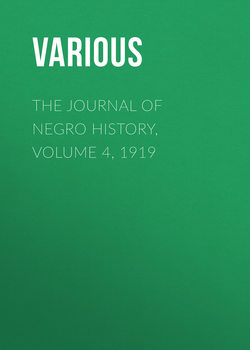Читать книгу The Journal of Negro History, Volume 4, 1919 - Various - Страница 9
The Journal of Negro History
Vol. IV—January, 1919—No. 1
DOCUMENTS
REMARKS ON THIS EXODUS BY FREDERICK DOUGLASS 69
ОглавлениеWashington, May 6.
Fred. Douglass, marshal of the District, is out in a very strong letter, published in the National View, the new Greenback organ here, vigorously opposing the emigration of Negroes from the South. He earnestly advises the colored men to remain at home.
The letter has caused a good deal of annoyance among the leading Republicans, who have been vigorously working up this movement, believing that it was a godsend to them and would be a strong issue in future campaigns.
Fred. Douglass winds up his letter as follows:
"I am opposed to this exodus, because it is an untimely concession to the idea that white people and colored people cannot live together in peace and prosperity unless the whites are a majority and control the legislation and hold the offices of the State. I am opposed to this exodus, because it will pour upon the people of Kansas and other Northern States a multitude of deluded, hungry, homeless people to be supported in a large measure by alms. I am opposed to this exodus, because it will enable our political adversaries to make successful appeals to popular prejudice (as in the case of the Chinese) on the ground that these people, so ignorant and helpless, have been imported for the purpose of making the North solid by outvoting intelligent white Northern citizens. I am opposed to this exodus, because 'rolling stones gather no moss;' and I agree with Emerson that the men who made Rome or any other locality worth going to see stayed there. There is, in my judgment, no part of the United States where an industrious and intelligent man can serve his race more wisely and efficiently than upon the soil where he was born and reared and is known. I am opposed to this exodus because I see in it a tendency to convert colored laboring men into traveling tramps, first going North because they are persecuted, and then returning South because they have been deceived in their expectations, which will excite against themselves and against our whole race an increasing measure of popular contempt and scorn. I am opposed to this exodus because I believe that the conditions of existence in the Southern States are steadily improving, and that the colored man there will ultimately realize the fullest measure of liberty and equality accorded and secured in any section of our common country.
